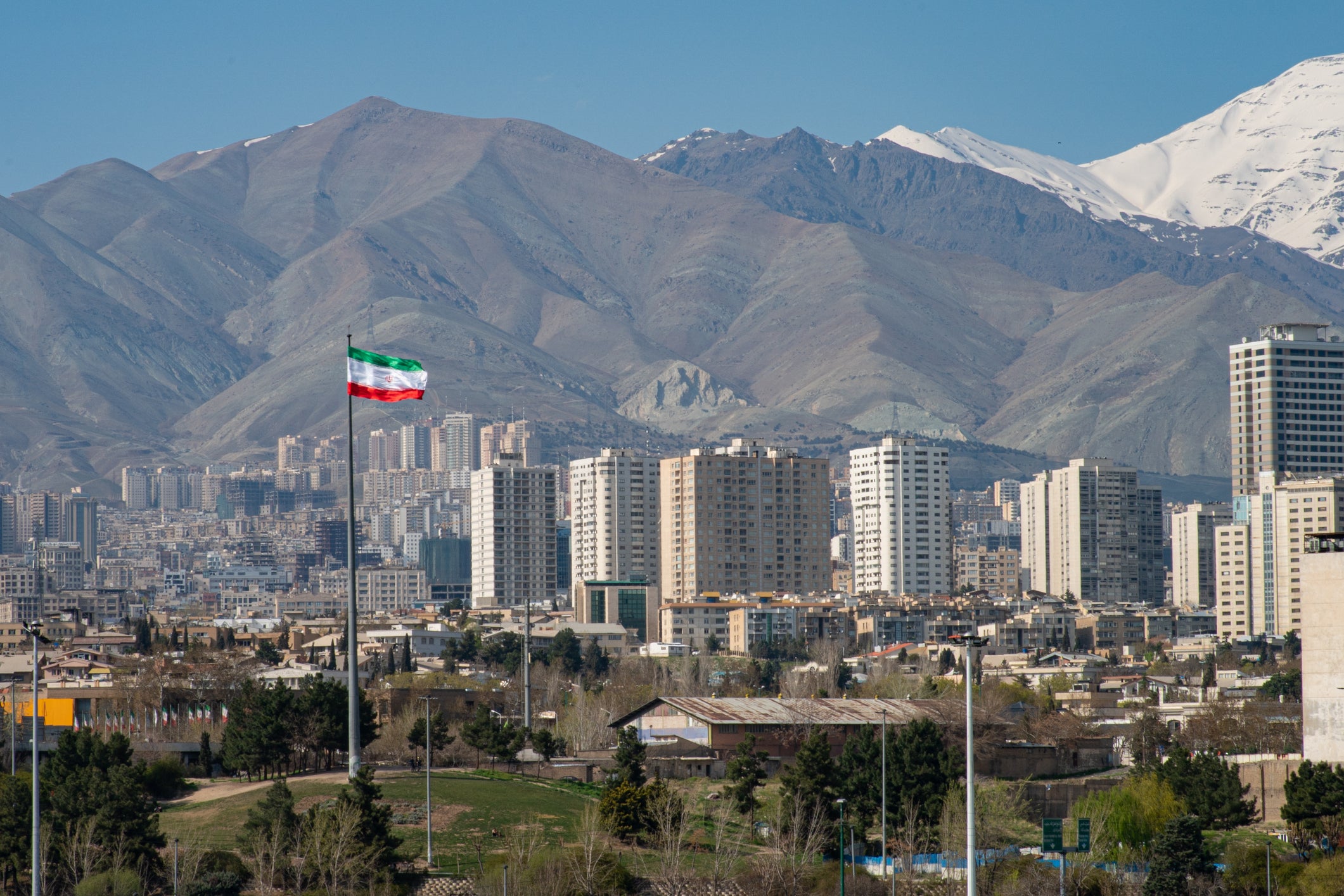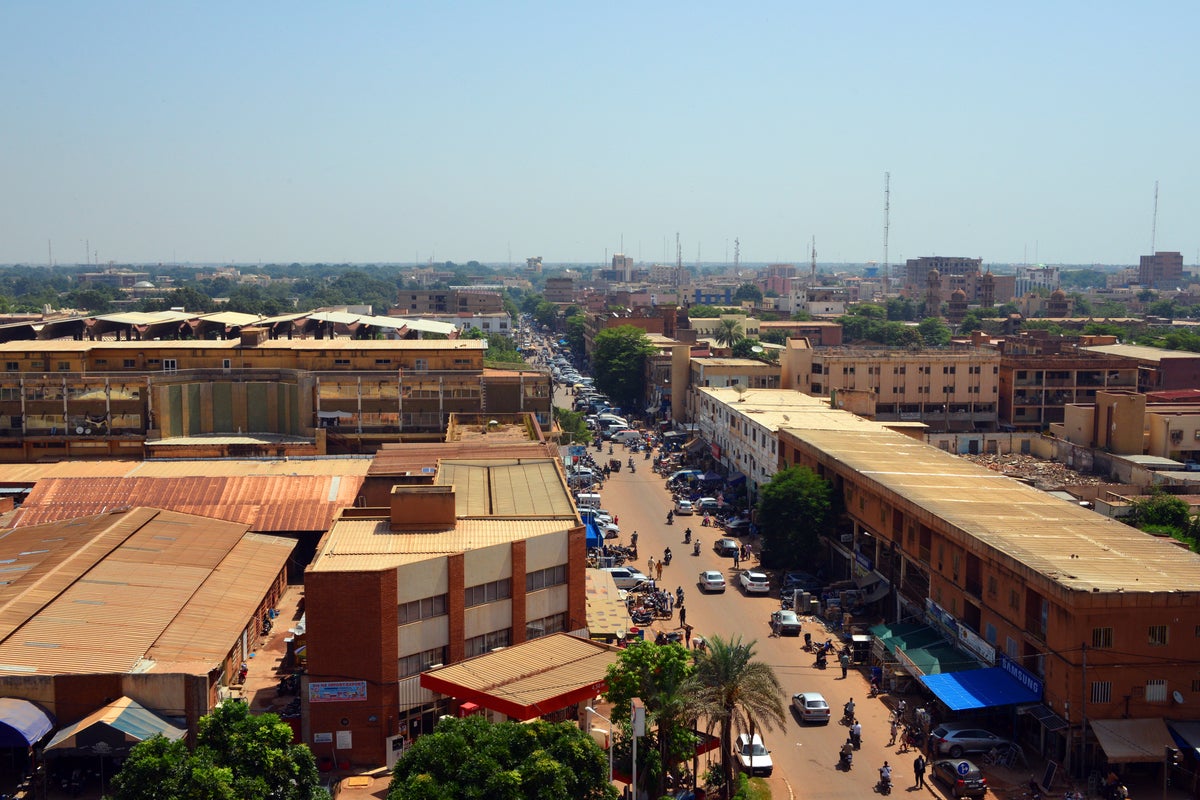When organizing a trip, it’s smart to verify these three things before heading to the airport: your passport is valid, your travel insurance is still active, and you’re going to a place that is considered safe according to theForeign Office, Commonwealth, and Development Office(FCDO).
Political disputes, natural catastrophes, and security issues are some of the factors influencing the UKForeign Officewill suggest that British citizens avoid specific locations.
The Foreign, Commonwealth & Development Office has released multiple travel alerts, such as recommendations against “all travel” and “all but necessary travel” to entire nations or specific regions within them.Europe, Africa, Asia and South America.
Out of 226 countries or regions that have foreign travel advisory pages, 74 are currently marked as areas to avoid because of security concerns, health dangers, and legal discrepancies with theUK.

If you decide to proceed with the trip despite the FCDO’s recommendations, your travel insurance may no longer be valid, and there could be limited consular assistance if an emergency arises abroad.
Here is the complete list of nations on the Foreign Office’s‘do not travel’ listto verify prior to planning a journey.
FCDO recommends avoiding all travel
- Afghanistan– “The security environment is unstable”
- Belarus– “You are at a high risk of being arrested”
- Burkina Faso– “Because of the risk of terrorist attacks and terrorist abductions”
- Haiti– “Because of the unstable security environment”
- Iran– “British citizens face a high risk of being arrested”
- Russia– “Because of the dangers and hazards posed by its ongoing invasion of Ukraine”
- South Sudan– “Because of the danger of armed conflict and crime”
- Syria– “Continuous fighting and unstable safety situations”
- Yemen– “Unpredictable security conditions”
FCDO recommends avoiding all travel to certain areas
- Algeria– all travel to areas within 30km of Algeria’s borders with Libya, Mauritania, Mali, Niger, and Tunisia
- Armenia– within 5 kilometers of the entire eastern border between Armenia and Azerbaijan
- Azerbaijan– Azerbaijan-Armenia border
- Benin– Northern border regions
- Burundi– Cibitoke and Bubanza regions, Kayanza region, and Bujumbura Rural region
- Cameroon– The Bakassi Peninsula and within 40km of the borders of the Central African Republic, Chad, and Nigeria
- Central African Republic– prohibited from traveling except to the capital, Bangui
- Chad– Borkou, Ennedi Ouest, Ennedi Est, and Tibesti regions, Kanem Province, including Nokou, the Lake Chad area, and within 30 kilometers of all other borders of Chad
- Congo– within 50km of the border between the Republic of the Congo and the Central African Republic in the Likouala Region
- Côte d’Ivoire– shares borders with Burkina Faso and Mali, and the Côte d’Ivoire-Liberia border
- Democratic Republic of the Congo– regions in Kinshasa Province, DRC-Central African Republic border, Eastern DRC, Kwamouth territory of Mai-Ndombe Province, and Kasaï Oriental Province
- Djibouti– Djibouti-Eritrea border
- Egypt– Border between Egypt and Libya and North Sinai
- Eritrea– within 25 kilometers of Eritrea’s land borders
- Ethiopia– international border zones, Tigray region, Amhara region, Afar region, Gambela region, Oromia region, Somali region, Central, Southern, Sidama, and South West regions and Benishangul-Gumuz region
- Georgia– South Ossetia and Abkhazia
- India– within 10 kilometers of the India-Pakistan border and Jammu and Kashmir
- Indonesia– Mount Lewotobi Laki-Laki, Mount Sinabung, Mount Marapi, Mount Semeru, Mount Ruang, Mount Ibu
- Iraq– warns against all travel to areas of Anbar province, Basra province, Diyala province, Kirkuk province, Ninawa province, Salah al-Din province, Sadr City, and within 30km of federal Iraq’s borders with Iran, Syria, Saudi Arabia, and Kuwait
- Israel– opposed to all travel to Gaza, certain areas of the West Bank, and northern Israel
- Jordan– within 3 kilometers of the border with Syria
- Lebanon– regions in Beirut and the Mount Lebanon Governorate, the South and Nabatiyah Governorates, the Beqaa Governorate, the Baalbek-Hermel Governorate, the Akkar Governorate, the city of Tripoli, and Palestinian refugee camps
- Libya– recommends avoiding all travel to Libya except for the cities of Benghazi and Misrata
- Mali– recommends avoiding all travel except to Bamako
- Mauritania– Eastern Mauritania and the Mauritania-Mali border
- Moldova–Transnistria
- Mozambique– Cabo Delgado Province
- Myanmar (Burma)– Chin Region, Kachin Region, Kayah Region, Kayin Region, Mon Region, Rakhine Region, Sagaing Region, Magway Region, Tanintharyi Region, Shan State North, Northern Mandalay Region
- Niger– prohibited from traveling except to the capital city of Niamey
- Nigeria– Borno, Yobe, Adamawa, Gombe, Kaduna, Katsina, Zamfara, and the riverine regions of Delta, Bayelsa, Rivers, Akwa Ibom, and Cross River states
- Pakistan– within a 10-mile radius of the border with Afghanistan, regions in Khyber Pakhtunkhwa Province and Balochistan Province
- Philippines– Western and Central Mindanao and the Sulu Archipelago
- Rwanda– Rubavu area and Rusizi area
- Saudi Arabia– Saudi Arabia-Yemen border
- Somalia– eastern part of Somaliland and western part of Somaliland
- Sudan– opposed to all travel except to the Hala’ib Triangle and the Bir Tawil Trapezoid
- The Occupied Palestinian Territories– opposing all travel to Gaza, the West Bank, and northern Israel
- Togo– Togo-Burkina Faso border
- Tunisia– Western Tunisia, covering the Tunisia-Algeria border and Southern Tunisia, encompassing the Tunisia-Libya border
- Turkey– within 10 kilometers of the Turkey-Syria border
- Ukraine– all areas of Ukraine except for certain western regions
- Venezuela– within 80 kilometers of the Venezuela-Colombia border, within 40 kilometers of the Venezuela-Brazil border, Zulia State
- Western Sahara– within 30km of the ‘Berm’ boundary line and to the south and east of the Berm boundary line
The FCDO recommends avoiding all travel except for essential purposes.
Regarding the definition of ‘essential travel,’ the FCDO states: “Whether your trip is considered essential is up to you. You might have pressing family or work-related matters that require your attention. Only you can make a well-informed choice based on your specific situation and the associated risks.”
- New Caledonia– “Given ongoing tensions”
- North Korea– “The security environment can shift rapidly without any prior notice”
- Mayotte– Cyclone Chido
FCDO recommends avoiding all but necessary travel to certain areas
- Angola– Province of Cabinda, border regions in the Province of Lunda Norte
- Bangladesh– Chittagong Hill Tracts
- Bolivia– Chapare region
- Brazil– Amazonas State
- Cambodia– within 50km of the border with Thailand in Oddar Meanchey and Preah Vihear provinces
- Colombia– boundaries, the Pacific coastline and sections of central Colombia
- Ecuador– seven coastal region provinces and within 20 kilometers of the Ecuador-Colombia border
- Ghana– Bawku Municipality
- Guatemala– within 5 kilometers of the Mexican border and the towns of Santa Ana Huista, San Antonio Huista, and La Democracia
- Kenya– The Kenya-Somalia border and the northern sections of the eastern coast
- Kosovo– Zvečan, Zubin Potok, and Leposaviç, along with the northern section of the city of Mitrovica
- Laos– Xaisomboun Province
- Malaysia– coastal islands of eastern Sabah
- Mexico– Baja California, Chihuahua, Sinaloa, Tamaulipas, Zacatecas, Guanajuato, Michoacán, Jalisco, Colima, Guerrero, Chiapas
- Papua New Guinea– Hela and the Southern Highlands provinces
- Peru– located 20km south of the Peru-Colombia border and the Apurímac, Ene, and Mantaro River valley
- Tanzania– Mtwara Region near the Tanzania-Mozambique border
- Thailand–regions in the south, close to the Thailand-Malaysia border and within 50km of the border from Cambodia
- Uganda– Queen Elizabeth National Park, the region directly to the southwest of Kasese town, and Semuliki National Park
For additional travel updates and tips, tune into Simon Calder’s podcast.
The Independent is the world’s most independent-minded news brand, offering worldwide news, opinions, and analysis for those who think for themselves. We have built a large, international audience of people who appreciate our reliable voice and dedication to promoting positive transformation. Our goal, to drive change, has never been more crucial than it is now.



